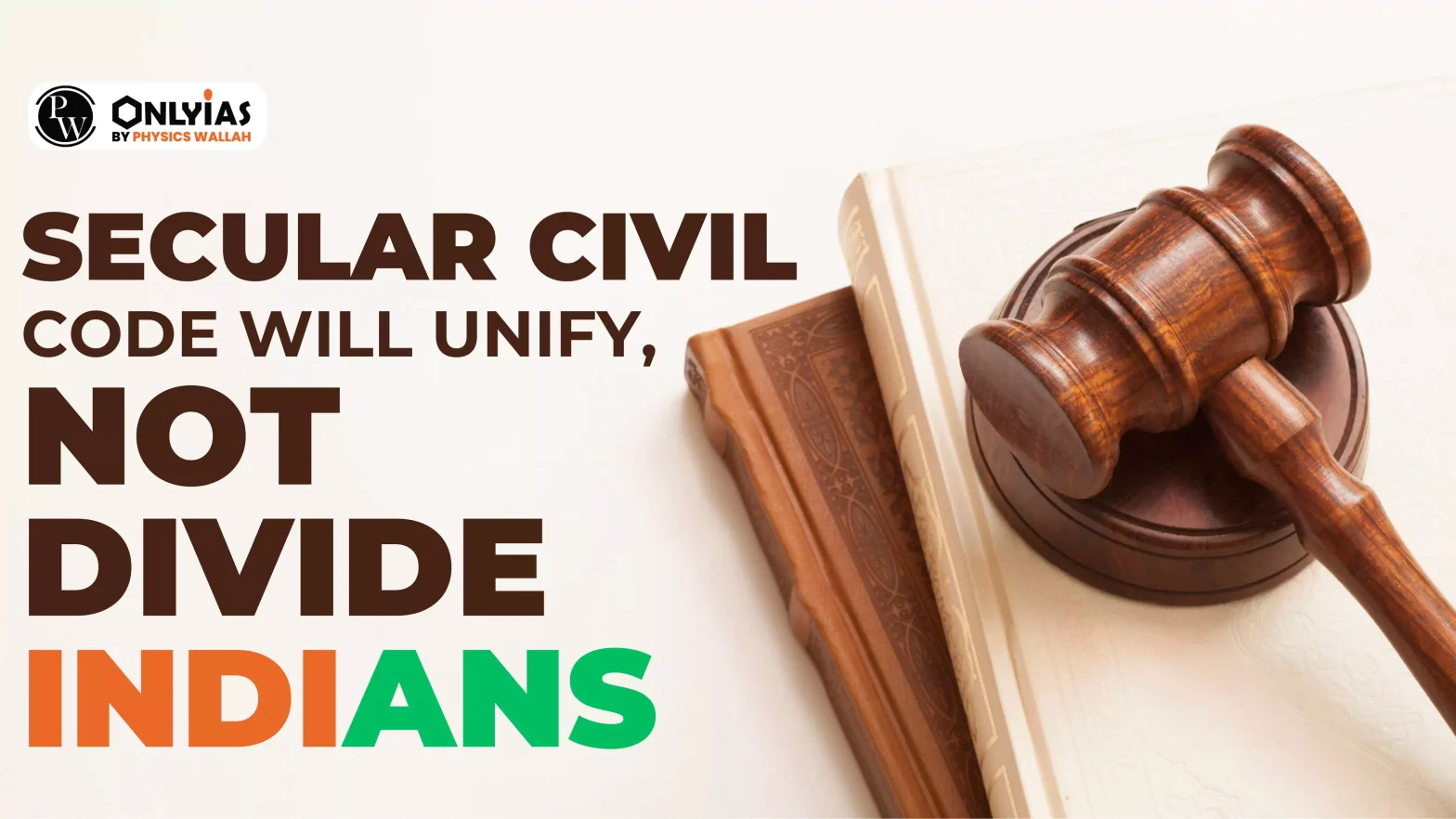On August 15, during India’s 78th Independence Day celebrations, Prime Minister Narendra Modi urged the implementation of a Secular Civil Code (SCC). This appeal has reignited the debate on a unified legal framework beyond personal laws and aligns with Babasaheb Ambedkar’s vision of equality and progress, especially for women.
Why Secular Civil Code is Important?
- Promotes Equality and Justice: Ensures all citizens are treated equally under the law, particularly benefiting women by bridging gaps caused by varied personal laws.
- Clarifies Religious Freedom: Opposes misconceptions that secular civil code threatens religious freedom; instead, it seeks to ensure equality in civil matters (marriage, divorce, inheritance) while respecting religious practices.
- Fosters National Unity: Standardised legal rights and responsibilities, aiming for uniformity in legal treatment without affecting religious identities.
- Global Examples: Shows that other democracies with unified civil laws (e.g., the U.S., France, Germany) have successfully balanced equality with cultural diversity.
- Addresses Discriminatory Laws: Replaces outdated and discriminatory personal laws with a standard code, promoting social justice and equal rights for women.
- Modernizes Legal System: Simplifies and streamlines the legal framework, making it clearer and more accessible for all citizens.
Enroll now for UPSC Online Course
Reducing Judicial Burden
- Alleviates Case Backlog: An Secular Civil Code could reduce the nearly 4.70 crore case backlog as of March 2022, many of which involve complex personal law disputes.
- Simplifies Legal Framework: By streamlining laws, an SCC would ease the judiciary’s workload, enabling it to focus on other critical issues.
Constitutional Duty and Policy Guideline
- Constitutional Mandate: Article 44 of the Indian Constitution directs the state to work towards a Uniform Civil Code for all citizens.
- Guiding Principle: While not legally enforceable, this directive serves as a fundamental principle for governance.
Case Study: Sarla Mudgal v. Union of India(1995)
- Exploitation of Personal Laws: A Hindu man converted to Islam to marry a second time, exploiting differences in personal laws regarding polygamy.
- Legal Challenge: This case demonstrated how individuals could bypass legal restrictions by exploiting personal law differences.
- Supreme Court Emphasis: The Court highlighted the need for a Uniform Civil Code (UCC) to ensure uniform legal standards for marriage, divorce, adoption, inheritance, and custody.
|
Conclusion
As Prime Minister Modi emphasised, implementing the SCC is both a legal necessity and a moral imperative. Moving beyond divisive personal laws is crucial for achieving the constitutional vision of equality and justice. Echoing Babasaheb Ambedkar’s view that “Law and order are the medicine of body politics,” the SCC is seen as a remedy for addressing persistent inequalities and injustices in Indian society.
Check Out UPSC Modules From PW Store
![]() 21 Aug 2024
21 Aug 2024
